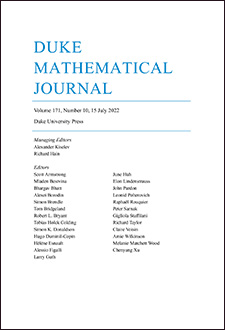Abstract
We prove a freeness theorem for low-rank subgroups of one-relator groups. Let F be a free group, and let be a nonprimitive element. The primitivity rank of w, , is the smallest rank of a subgroup of F containing w as an imprimitive element. Then any subgroup of the one-relator group generated by fewer than elements is free. In particular, if , then G does not contain any Baumslag–Solitar groups.
The hypothesis that implies that the presentation complex X of the one-relator group G has negative immersions: if a compact, connected complex Y immerses into X and , then Y Nielsen reduces to a graph.
The freeness theorem is a consequence of a dependence theorem for free groups, which implies several classical facts about free and one-relator groups, including Magnus’ Freiheitssatz and theorems of Lyndon, Baumslag, Stallings, and Duncan–Howie.
The dependence theorem strengthens Wise’s w-cycles conjecture, proved independently by the authors and Helfer–Wise, which implies that the one-relator complex X has nonpositive immersions when .
Citation
Larsen Louder. Henry Wilton. "Negative immersions for one-relator groups." Duke Math. J. 171 (3) 547 - 594, 15 February 2022. https://doi.org/10.1215/00127094-2021-0024
Information





